Get The Visibility Your Company Needs
Reduce compliance risks and mobility costs while managing individual and project-related travel with ImmiSMART: the solution that unifies your travel and mobility programs.
EUROPEAN UNION – Reminder of Upcoming Entry-Exit System (EES)
July 18, 2024
This article was originally posted on July 01, 2024, and was updated on July 18, 2024 to include the latest anticipated launch date of EES.
By: Clara Excler
Changes to travelling in Europe are due to take place in 2024 and 2025 with the introduction of the Entry-Exit System (EES) and the European Travel and Immigration Authorisation System (ETIAS). This update provides a summary on the EES.
Purpose of EES
EES is an automated border registration system that travelers will need to go through each time they enter and exit the Schengen area (I.e. each time they cross the external EU borders. The system does not apply to intra-Schengen travel).
The aims of EES include:
- To check the identity of the traveler
- To replace entry and exit stamps in passports
- To check travelers’ criminal records
- To check travelers’ immigration history, including previous entry or visa refusal
- To create an electronic record of each traveler’s stay in the Schengen area.
Please note:
- If a traveler has exceeded their Schengen allowance of 90 days in a 180-day period, they can be refused entry.
- Visits for both business and personal (tourist) reasons are counted towards the Schengen allowance.
EES-required nationals
All non-EU/EEA/Swiss nationals will require an EES. This includes visa-required as well as non-visa-required non-EU/EEA/Swiss nationals entering the Schengen area as visitors.
EES-required countries
All Schengen countries will be using the EES:
- Austria
- Belgium
- Croatia
- Czech Republic
- Denmark
- Estonia
- Finland
- France
- Germany
- Greece
- Hungary
- Iceland
- Italy
- Latvia
- Liechtenstein
- Lithuania
- Luxembourg
- Malta
- Netherlands
- Norway
- Poland
- Portugal
- Slovakia
- Slovenia
- Spain
- Sweden
- Switzerland
EES process for travelers
Travelers will have their biometric data (fingerprints and facial photograph) taken at a special kiosk, before processing their passport, and the system will check the data against EU security databases (SIS, Interpol, SLTD).
A mobile application is currently being developed by the EU, to start pre-registration from home, but it is not expected to be ready for the launch of the new system.
Airports, ports and railway stations are in full preparation mode, investing in dedicated registration zones and facilities, planning to adapt their queuing system (especially for cars and coaches) and installing and testing the new kiosks.
While some airports are raising concern about their readiness, the biggest challenges are faced at the English Channel crossing, at the ports of Calais, Dover, Folkestone, and the Eurostar terminals, which have dual controls, limited space for processing, and must also plan to adapt the registration zones to weather conditions.
EES implementation timeline
There have been a number of delays to implementation, and current reports indicate that the implementation of EES is once again postponed. The European Authorities never formally confirmed a date, but October 2024 had been the latest launch date circulated. Amid concerns of readiness, November 10, 2024 (November 17 at the very latest) is now suggested as the new tentative launch date.
Newland Chase insight
We recommend anticipating delays when entering and exiting the Schengen area, particularly during the transition phase after initial implementation of the system. Travellers should allow additional time prior to boarding, especially when crossing the English Channel via train or ferry.
We also advise employers to keep track of their employees’ Schengen allowance (which includes any time spent in the Schengen area for either business or holidays), as it will become recorded and tracked by the EES, leaving no room for mistakes.
This immigration update is for informational purposes only and is not a substitute for legal or scenario-specific advice. Furthermore, it is important to note that immigration announcements are subject to sudden and unexpected changes. Readers are encouraged to reach out to Newland Case for any case- or company-specific assessments.



